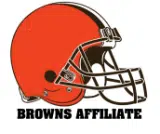Where Are They Now: Donald Igwekuike converted from soccer in Nigeria to football in America, won a national title at Clemson and made it to the NFL. Then an improbable mix-up cut his career short.
“Where the hell’s my kicker?” Danny Ford yelled. The head coach for Clemson scanned the sidelines that day in the fall of 1981. “Dammit, it’s fourth down. Where the hell is he?”
You could excuse the offending party for his lapse. It was the first football game that the truant kicker had ever attended. “Not just played in,” Donald Igwebuike says, cackling at the memory, now almost 40 years later. “It was the first football game I’d ever been to. Man, you think I knew what fourth down was?”
With a few seconds to spare, Igwebuike scampered onto the field. He wasn’t entirely sure where to stand, or how many steps he ought to take before addressing the kick. But Clemson’s center snapped the ball, the holder held it down, and, in his first official field goal attempt at any level, Igwebuike nailed a 52-yarder. Clemson would win that season-opener against Wofford 45-10. And Igwebuike would start every game for the rest of his college career.
It’s just one of the scenes in the wonderfully improbable story of Donald Igwebuike, a cinematic tale that’s equal parts Coming-to-America immigrant story and a classic sports movie, with a strange and incongruous detour into a wrongful accusation flick.
The story starts in Enugu, Nigeria, where young Donald Igwebuike, a speedy soccer player with an irresistible surname—it translates into “unity is strength” in the local tongue of Ibo—traveled around Africa with his elite junior team. Igwebuike, who eventually made Nigeria’s national team, had designs of a professional career, maybe in Europe. But his childhood friend, Obed Ariri, had attended Clemson to play soccer and encouraged the coach to recruit Igwebuike.
At Clemson, Ariri played soccer but also became the kicker on the football team. In the spring of 1981, Ariri was training for the NFL draft and asked Igwebuike to serve as his workout partner. Naturally, Igwebuike tried a few kicks of his own, and damn if the ball didn’t sail through the uprights.
With Ariri off to the NFL, Clemson had a vacancy at kicker. Ariri told Coach Ford about his buddy, another Nigerian ringer. Ford encouraged Igwebuike to join the team. A rising sophomore, Igwebuike agreed on the condition that he could continue playing soccer. Ford agreed. (Igwebuike took a football scholarship so the soccer team could have the extra slot.) Igwebuike won the starting job, and learned as he went, calibrating power and control. By January of his first season—having, throughout the season, familiarized himself with at least some of football’s rules—he kicked three field goals in the Orange Bowl as Clemson won the national championship.
He was thousands of miles from home, in the belly of South Carolina, playing a sport that two years prior he scarcely knew existed (“I thought it was rugby.”) … and he could scarcely have been happier. Igwebuike took to college life, the happy absurdity of his own story and the camaraderie among his soccer and football teammates. One of them was a defensive lineman, William Perry, famous for his heroic appetite at the training table. Perry was, Igwebuike recalls, “a fun and funny dude,” who would try to kick field goals. Igwebuike recalls that one day a teammate nicknamed Perry “The Fridge.” Everyone laughed. And no one called him William after that.
Igwebuike didn’t know it at the time, but he played a vital role in opening a pipeline of athletic talent flowing to the U.S. from Africa, and from Nigeria in particular. A year after his arrival, a Nigerian basketball star, Akeem Olajuwon, headed to the University of Houston. Around the same time, Christian Okoye, a thickly-built running back from Igbewuike’s hometown, decamped for Azusa Pacific University in California before going on to star in the NFL.
At Clemson, Igwebuike got better every season, and by his senior year, it was clear he had a shot at the NFL. Returning the favor, Obed Ariri came back to Clemson’s campus to help Igwebuike prepare for the draft. To his slight disappointment, Igwebuike slipped to the 10th round, where he was selected by Tampa Bay. “You must mean Green Bay,” Igwebuike said upon hearing the news. “It’s gonna be cold up there.”
“No,” coaches assured him. “Not Green Bay. Tampa Bay.”
Igwebuike was confused. His mentor and friend Ariri was trying out for the Buccaneers. How could he be heading there, too? “Well,” he was told, “I guess you’re gonna have to beat out your friend for the job.”
It made for a sensational coincidence, two converted soccer players, boyhood friends from Nigeria, now dueling to become a starting NFL kicker. It also gave new dimension to the concept of awkward. “It was one of the hardest things I’ve ever experienced,” says Igwebuike. “Before camp, I just told him, ‘Obed, do the best you can. I’ll do the best I can. Let’s leave it to the coach to decide, and not let it affect our friendship.’”

Igwebuike won the kickoff bake-off, so to speak, and was suddenly in the NFL. As he recalls it, his starting salary was $60,000, but his contract was filled with bonuses. “Playing in the NFL was such a dream,” he says. “I was always thinking: There are how many million people in the United States, and only a thousand get to do this for a living. … It really was like a dream. The publicity, the name recognition, I was feeling blessed to be a part of it.”
He also felt fortunate to have been drafted by a warm weather team, Tampa Bay and not Green Bay. It was an easy joke. But he says that, as a Nigerian, he was so unaccustomed to inhospitable weather that he felt physical pain when asked to kick in the searing cold. “Wide receivers, linebackers, running backs … they can go out there, run and come back to the heaters,” he says. “[The kicker] just stands on the sidelines and when it’s your turn to kick, you’re expected to be warm! I missed the shortest field goals of my career in Green Bay, but the ball was frozen!” Even now, at age 59, he winces just thinking about it.
Like all kickers, Igwebuike worked in the equivalent of a satellite office, a member of a three-man assembly line. His duties were altogether different from the blocking, tackling, throwing and catching performed by his teammates. While they were risking limb and life—he ticks off a half-dozen teammates, including his best friend, Bucs cornerback Bobby Futrell, and Chris Doleman, who died before reaching age 45—Igwebuike could go weeks and weeks without physical contact, much less getting tackled. Even the bars on his helmet suggested “otherness.”
But he was popular among his teammates, popular for the sense of humor he deployed early and often. And he reciprocated their warmth. Today, asked about favorite NFL memories, reflexively, he lists people, not events. He was blessed, he says, to have played alongside Steve Young and Vinny Testaverde and played against everyone from Walter Payton to Dan Marino to Reggie White.
In the offseason, he continued to play soccer. It was his first love. But he also found that it helped his occupation. “I was always a midfielder,” he says. “One of the qualities of that position is accurate, precise passes. So I think that helped me be a decent NFL kicker.”
He was better than decent. His rookie year, he made 22 of 32 field goals and his three makes from 50-plus yards tied for the NFL lead. In large part because of his outgoing personality—and at least in small part because of his exotic, mellifluous name—he became a fan favorite. He held onto his job and by his third year, he made 14 of 18 attempts.
After five years in Tampa, Igwebuike had become the Buccaneers’ all-time leading scorer. (Yes, it’s a statement about the Buccaneers’s ritual futility, as much as it is of Igwebuike’s kicking prowess.) Before the 1990 season, he was signed by the Vikings, a cold-weather franchise, but at least one that played in a dome. That season, Igwebuike was on a trajectory heading for the Pro Bowl. After eight games, he had made 14 of 16 field goals and all 19 of his extra points.
And then came one of the more improbable and bizarre chapters you will ever come across in a sports narrative—and a reason that Igwebuike, otherwise so jovial, was at first reluctant to speak for this story.
Throughout his NFL career, Igwebuike had been generous to a fault, sending money home and helping Nigerian friends. In the fall of 1990, a friend, Maduwuba O. Ibekwe, flew from Nigeria to the U.S. on a ticket Igwebuike had purchased. When Ibekwe landed at Orlando International Airport on October 11, he was intercepted by U.S. customs service officials, who found three packets of heroin in his undergarments. He was transferred to a local hospital and was believed to have ingested as many as 31 packets. Also arrested was Ibezim Ofedu, who allegedly accepted drugs from an undercover customs agent.
In exchange for a lesser sentence, both men agreed to cooperate with the government and secretly recorded calls with Igwebuike. Suddenly, one of the most accurate kickers in the NFL that 1990 season was charged with smuggling conspiracy, conspiracy to possess with intent to distribute and importation of heroin. If convicted and sentenced to the maximum on all charges, he could face up to 120 years in prison and $6 million in fines.
The indictment of an NFL player on international drug smuggling charges made for a salacious headline. The Vikings issued a terse statement, and suddenly cleaving uprights with his kicks was the least of Igwebuike’s concerns. Apart from being sensationally out of character for Igwebuike, the fact pattern made little sense. While both Ofedu and Ibekwe pled guilty, the government couldn’t prove a case against Igwebuike.
In the spring of 1991, he was acquitted by a federal jury on all charges. Upon hearing the verdict, he pumped his fist as if he’d nailed a long field goal. “I went through hell,” he said at the time, teary-eyed, as he puffed a victory cigar outside the federal courthouse in Tampa.
Still shaken by the ordeal—“Trust me, it was terrible,” he says—Igwebuike marvels at how perilously close he came to losing his reputation. “I felt vindicated,” he says. “But it’s a lot easier to ruin your name than to get your name back.” As is so often the case, his arrest was splashy news; the headline sizes and blocks of airtime devoted to his exoneration were considerably smaller.
Happy as he was for the vindication, the episode exacted a huge price on his professional career. While other kickers with lesser stats were suddenly signing seven-figure deals, Igwebuike was, unmistakably, black-balled. He would kick for the Baltimore Stallions and the Memphis Mad Dogs of the Canadian Football League but never again in the NFL.
A ferocious optimist, Igwebuike was determined not to become embittered, much less broken, by what he calls “a nasty, crazy situation.” While playing in Baltimore, he grew fond of the Maryland suburbs, where the sizable Nigerian ex-pat community included family members. He settled there, a father of five kids—four daughters and a son—currently ages middle school to medical school.

He wears an expansive smile as he talks about his kids and his extended family, including his nephew, Godwin Igwebuike, who played defensive back at Northwestern and has made assorted NFL practice squads. He also is in close contact with various teammates from Clemson and the NFL. And, yes, he’s still friendly with his boyhood friend and Clemson mentor, Obed Ariri, who lives in Tampa.
After leaving football, Igwebuike has launched a kicking academy. He is guarded about his employment history, but has worked in sales, health care and mental health. He is much more passionate when discussing soccer. Igwebuike is chairman of the Ex-Rangers Players Association, a group of retired professional soccer players who came from Africa and played worldwide, including in the Premier League. The group holds annual conventions, which are reunions and occasions to swap stories; but they double as fundraisers for other former prominent African players who have fallen on tough times. This year’s convention was canceled but the 2021 event will be held in Maryland, with Igwebuike serving as organizer and host.
As the Adidas sweatshirt he wears for this interview suggests, Igwebuike still plays soccer, too. Within a few pounds of his NFL weight of 180, Igwebuike, crowding age 60, is a stalwart in multiple leagues in Maryland, including NSL, the Nigerian Soccer League. “It’s funny, I can’t jog around the field for two laps,” he says. “But I can still play soccer for two hours. It’s my only exercise.”
As for kicking the football, he reckons he can still do that, too. Asked how many extra points out of 100 he could make today, he laughs that familiar laugh.
“In warm weather?”
Sure, in warm weather.
“Oh, 99.”
• Question or comment? Email us.


















